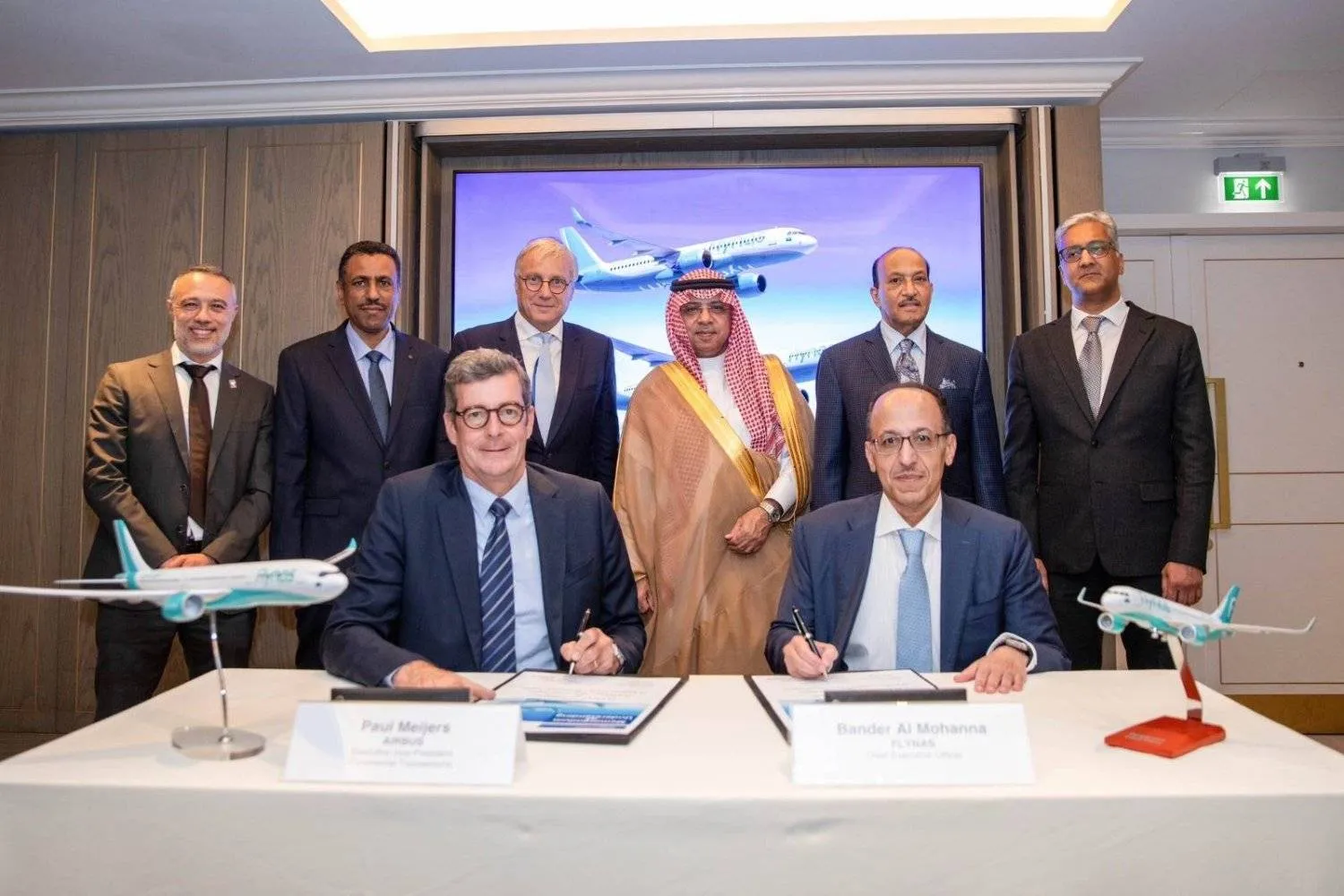flynas, Saudi Arabia’s leading low-cost carrier, has signed a Memorandum of Understanding (MoU) with Airbus for 75 A320neo family aircraft and 15 A330-900. This strategic agreement will expand the airline's capacity, range and enhance its overall fleet capabilities.
Signed during Farnborough International Airshow in the presence of President of the General Authority of Civil Aviation (GACA) of Saudi Arabia, Abdulaziz bin Abdullah Al-Duailej, Chairman of the Board of NAS Holding Ayed Al Jeaid, flynas Chief Executive Officer & Managing Director Bandar Almohanna, and Airbus Chief Executive Officer, Commercial Aircraft, Christian Scherer, Airbus said on its website.
The new aircraft will join the carrier’s all Airbus fleet serving international, domestic and regional routes. The new A330-900 aircraft will boast a two-class configuration, accommodating up to 400 passengers.
"We are excited to further strengthen our long-standing partnership with Airbus," said Bander Almohanna, CEO and Managing Director of flynas. "The A320neo Family provides exceptional operational performance and environmental benefits, allowing us to offer unique, low-cost travel experiences. Additionally, the A330neowill enhance our long-haul capabilities with its advanced technology and efficiency while supporting our growth plans and Saudi Arabia’s pilgrim program."
Airbus Chief Executive Officer, Commercial Aircraft, Christian Scherer said, "We are delighted to expand our partnership with flynas through this significant milestone for both A320neo and A330-900 aircraft. The A330neo will allow flynas to further grow into widebody markets by building on the A320, benefiting from Airbus’ unique commonality. Both aircraft types offer flynas the perfect versatility and economics to expand into new markets while offering their passengers the latest cabin experience and comfort. We look forward to continuing our successful collaboration with flynas as they embark on this exciting new chapter."
The addition of the A330-900 aircraft will support flynas' ambitious growth plans. The airline anticipates significant operational efficiency gains by combining the new widebody aircraft with its existing A320neo fleet. The A330-900 offers increased capacity and range at unrivaled seat costs, ensuring flynas can compete effectively in the growing regional market, a key focus area for the airline.
The A330neo delivers unbeatable operating economics, powered by the latest-generation Rolls-Royce Trent 7000 engines, featuring new wings and a range of aerodynamic innovations resulting in a 25 percent reduction in fuel consumption and CO₂ emissions compared to previous generation competitor aircraft. The A330neo is capable of flying 8,150 nm / 15,094 km non-stop, providing ultimate comfort with more passenger space, a new lighting system, latest in-flight entertainment systems and full connectivity throughout the cabin.
As with all Airbus aircraft, the A330 family is already able to operate with up to 50% Sustainable Aviation Fuel (SAF). The manufacturer is targeting to have its aircraft up to 100% SAF capable by 2030.
Saudi's flynas Strikes Deal for Additional Airbus A320neos, 15 A330s

Saudi's flynas strikes deal for additional Airbus A320neos, 15 A330s (flynas)

Saudi's flynas Strikes Deal for Additional Airbus A320neos, 15 A330s

Saudi's flynas strikes deal for additional Airbus A320neos, 15 A330s (flynas)
لم تشترك بعد
انشئ حساباً خاصاً بك لتحصل على أخبار مخصصة لك ولتتمتع بخاصية حفظ المقالات وتتلقى نشراتنا البريدية المتنوعة







